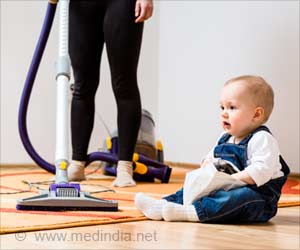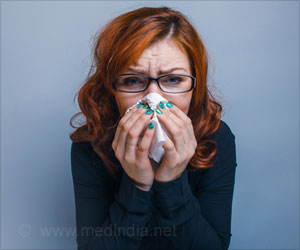Chemical preservatives in personal care products have BAC present in them, which can reduce the effectiveness of antibiotics and can also cause irritation and eye damage in the long run. Therefore, switch to single-use, pre-sterilized products to protect your face and eyes.

‘Chemical preservatives in personal care products have BAC present in them, which can reduce the effectiveness of antibiotics and can also cause irritation and eye damage in the long run. Therefore, switch to single-use, pre-sterilized products to protect your face and eyes.’





These common bacteria -- Enterococcus faecium, Staphylococcus aureus, Klebsiella pneumoniae, Acinetobacter baumannii, Pseudomonas aeruginosa, and Enterobacter species -- are harmless enough in their natural habitats of gut, soil or water. However, if a patient who is already critically ill or immunocompromised comes into contact with one, it can result in life-threatening illness including pneumonia, sepsis and wound infections. The team found even when administered at low levels, BAC can block aminoglycosides and prevent the antibiotics from entering the bacterial cell.
"BAC is a biocide disinfectant valued for being non-toxic, and as a result is widely used in healthcare, food safety and agriculture, as well as in common household products such as antibacterial wipes, wound disinfectants, eyedrops and eardrops," said Francesca Short, from the varsity's Department of Molecular Science.
The researchers found that it also dramatically increases the frequency at which new, potentially resistant mutants emerge. The results suggest that measures need to be taken to prevent the exposure of bacteria to lower levels of BAC-levels that are not high enough to kill bacteria but may be high enough to allow mutations to occur or help the bacteria gradually get used to the effects of the antibiotics.
"While disinfectants like antibacterial wipes usually contain high levels of BAC that are sufficient to kill the bacteria they come into contact with initially, they still pose a risk as this compound has a long half-life, which means it remains in the environment for a long time before breaking down," Short said.
Advertisement
Short said as consumers, we shouldn't choose antibacterial products as a default just because we think they're giving our families better protection.
Advertisement
"When it comes to personal care products like eyedrops, in future, it would be preferable to switch to single-use, pre-sterilized products instead of using chemical preservatives, as BAC not only reduces the effectiveness of antibiotics, but can also cause irritation and even eye damage with long-term use," Short noted.
Source-IANS










